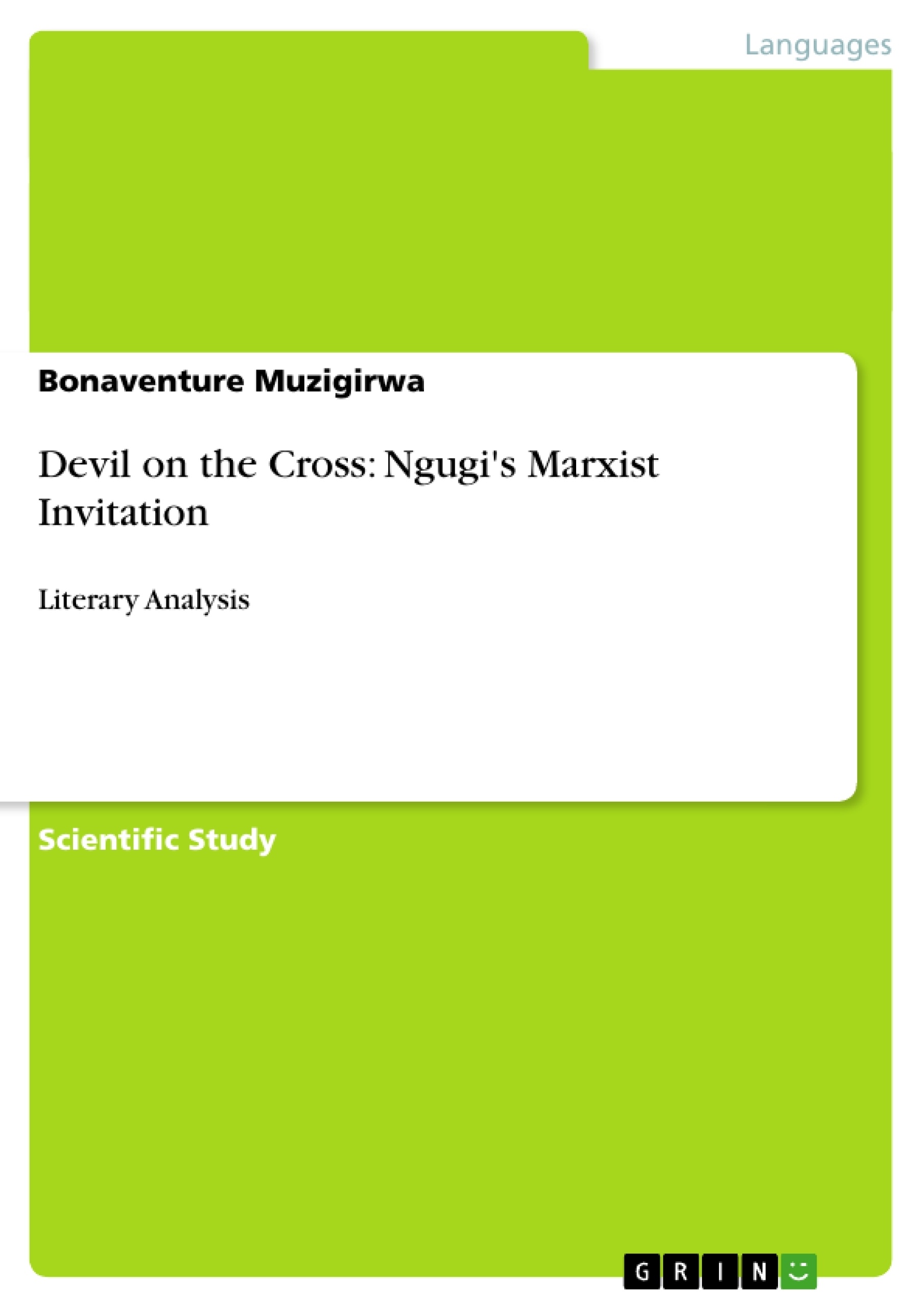This paper is a Marxist approach to Ngugi-Wa-Thiong’o’s Devil on the Cross It seeks to show how Ngugi is committed to the struggle against Neo-colonialism and imperialism. It presents Ngugi’s Devil on the Cross as an invitation for the prole tariat and the oppressed people to act
Key words: Commitment, Marxism, Socialist realism
Table of Contents
- The Problem
- Ngugi and his Commitment
- Ngugi's Marxist Invitation
- The Devil on the Cross: A Marxist Approach
- The Proletariat's Invitation to Crucify the Devil
- Conclusion
Objectives and Key Themes
This paper examines Ngugi wa Thiong'o's novel "Devil on the Cross" through a Marxist lens. It aims to demonstrate Ngugi's commitment to the struggle against neocolonialism and imperialism. The paper argues that the novel serves as an invitation for the proletariat and oppressed people to take action against these forces.
- Marxist critique of neocolonialism and imperialism
- The role of the proletariat in social change
- The exploitation of the African masses
- Ngugi's call for a socialist revolution
- The novel's symbolic representation of social and political forces
Chapter Summaries
The paper begins by exploring the title's meaning and its implications for the novel's overarching message. It establishes the Marxist framework for analyzing the text, highlighting the significance of class conflict and social inequalities. The paper then delves into Ngugi's commitment to Marxist principles and his call for the proletariat to rise up against oppression.
The paper then analyzes the novel's narrative, focusing on the experiences of Wariinga, a young woman who faces numerous hardships as a result of neocolonialism and capitalism. Her struggle reflects the broader exploitation and oppression experienced by the African masses. Through her story, Ngugi exposes the insidious nature of these forces and emphasizes the need for collective action.
The analysis highlights key scenes and characters that symbolize the ongoing struggle between the oppressors and the oppressed. The paper concludes by examining Ngugi's call for a socialist revolution and his belief in the proletariat's ability to overthrow the "devil" of neocolonialism and capitalism.
Keywords
This paper centers around key themes of neocolonialism, imperialism, Marxism, socialist realism, class struggle, and the African proletariat. It examines Ngugi wa Thiong'o's use of symbolism and allegory to convey his message of liberation and social change. The paper also explores the role of the writer as a social critic and advocate for the oppressed.
- Quote paper
- Bonaventure Muzigirwa (Author), 2010, Devil on the Cross: Ngugi's Marxist Invitation, Munich, GRIN Verlag, https://www.grin.com/document/200641




